Lee Ufan
27 Oct 2023 - 28 Apr 2024
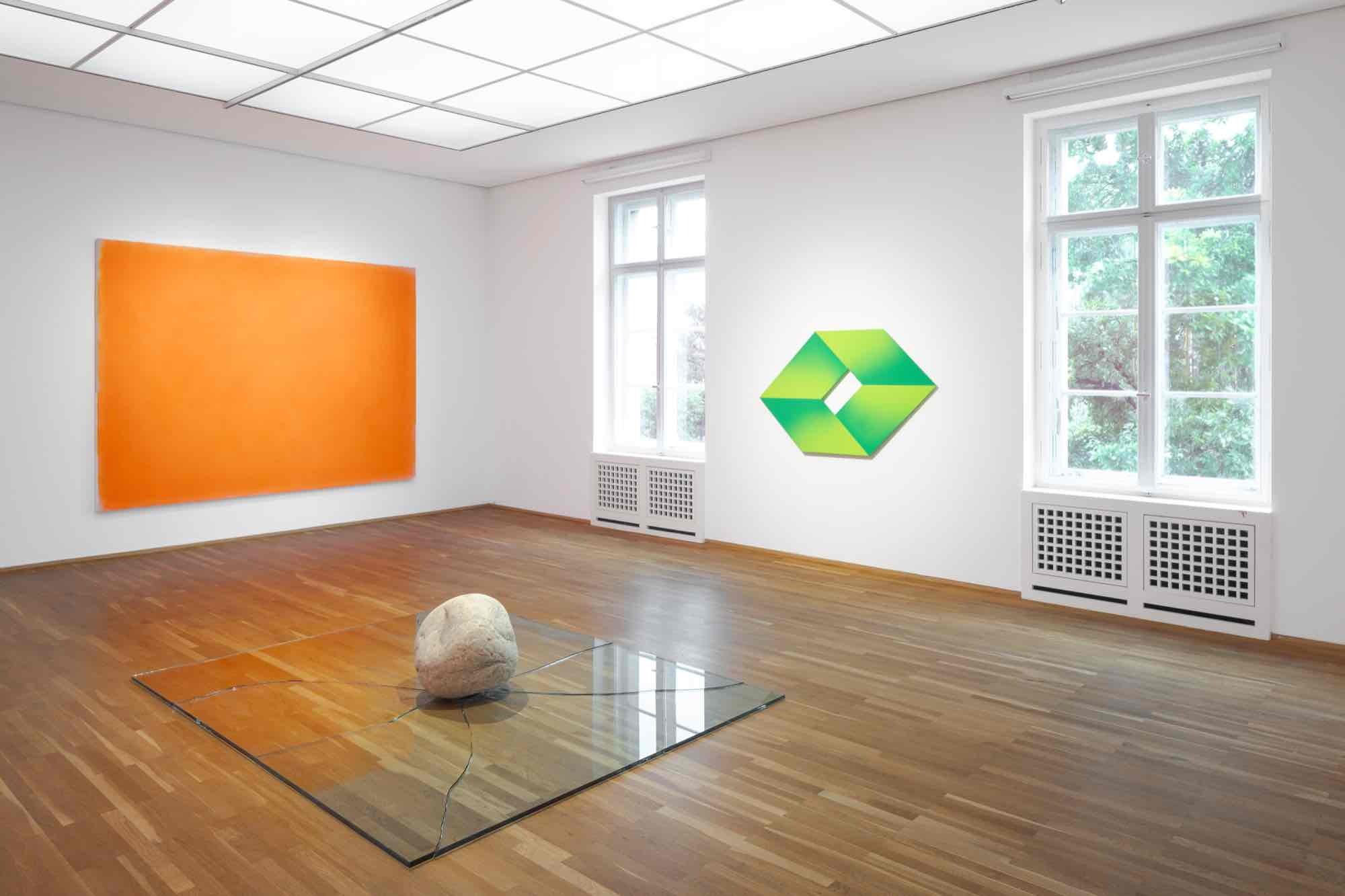
Exhibition view „Lee Ufan“, Hamburger Bahnhof – Nationalgalerie der Gegenwart, 27.10.2023 – 28.4.2024 © Lee Ufan. Courtesy of Studio Lee Ufan / VG Bild-Kunst, Bonn 2023 / Jacopo La Forgia
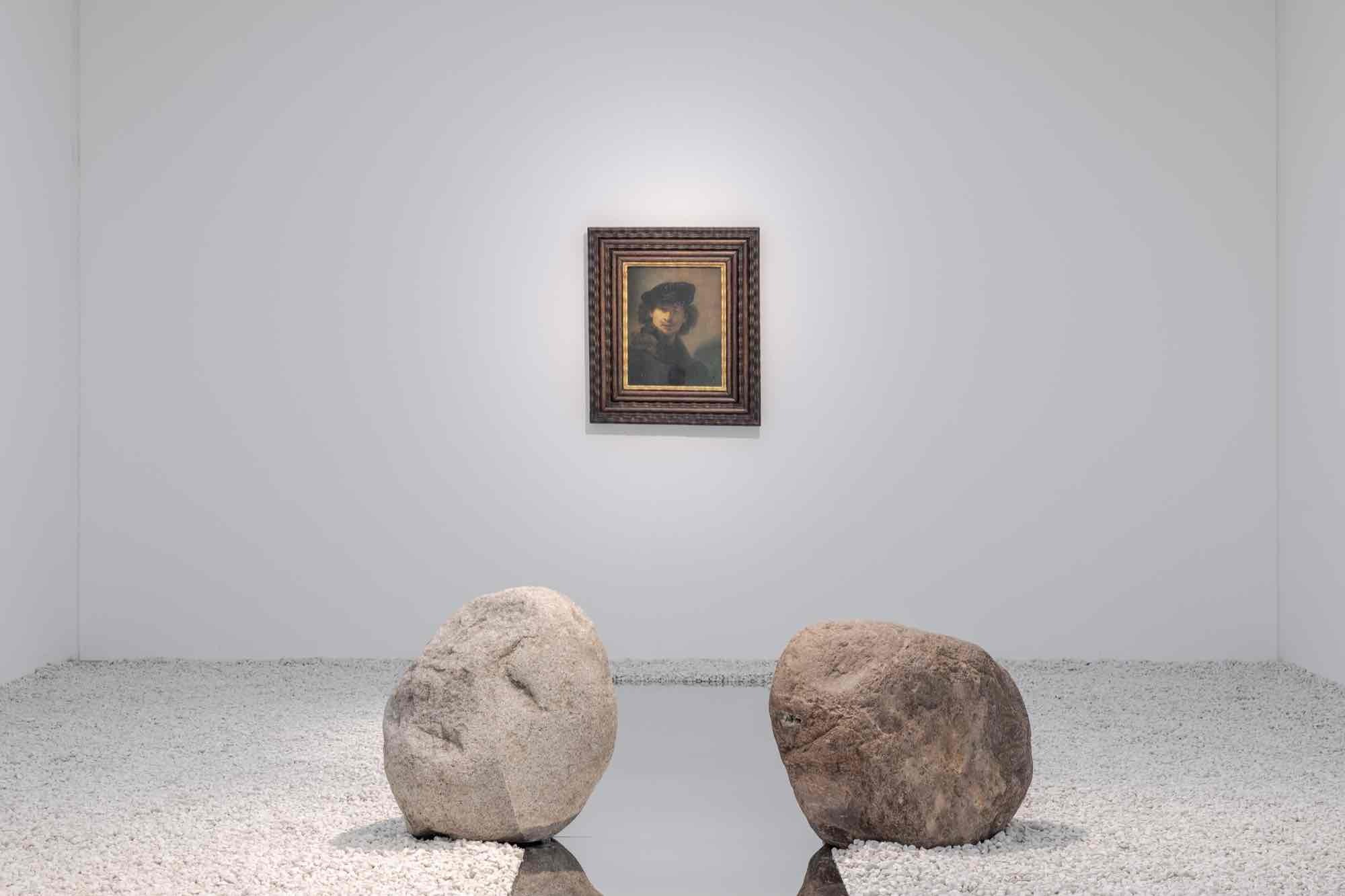
Exhibition view „Lee Ufan“, Hamburger Bahnhof – Nationalgalerie der Gegenwart, 27.10.2023 – 28.4.2024 © Lee Ufan. Courtesy of Studio Lee Ufan / VG Bild-Kunst, Bonn 2023 / Jacopo La Forgia
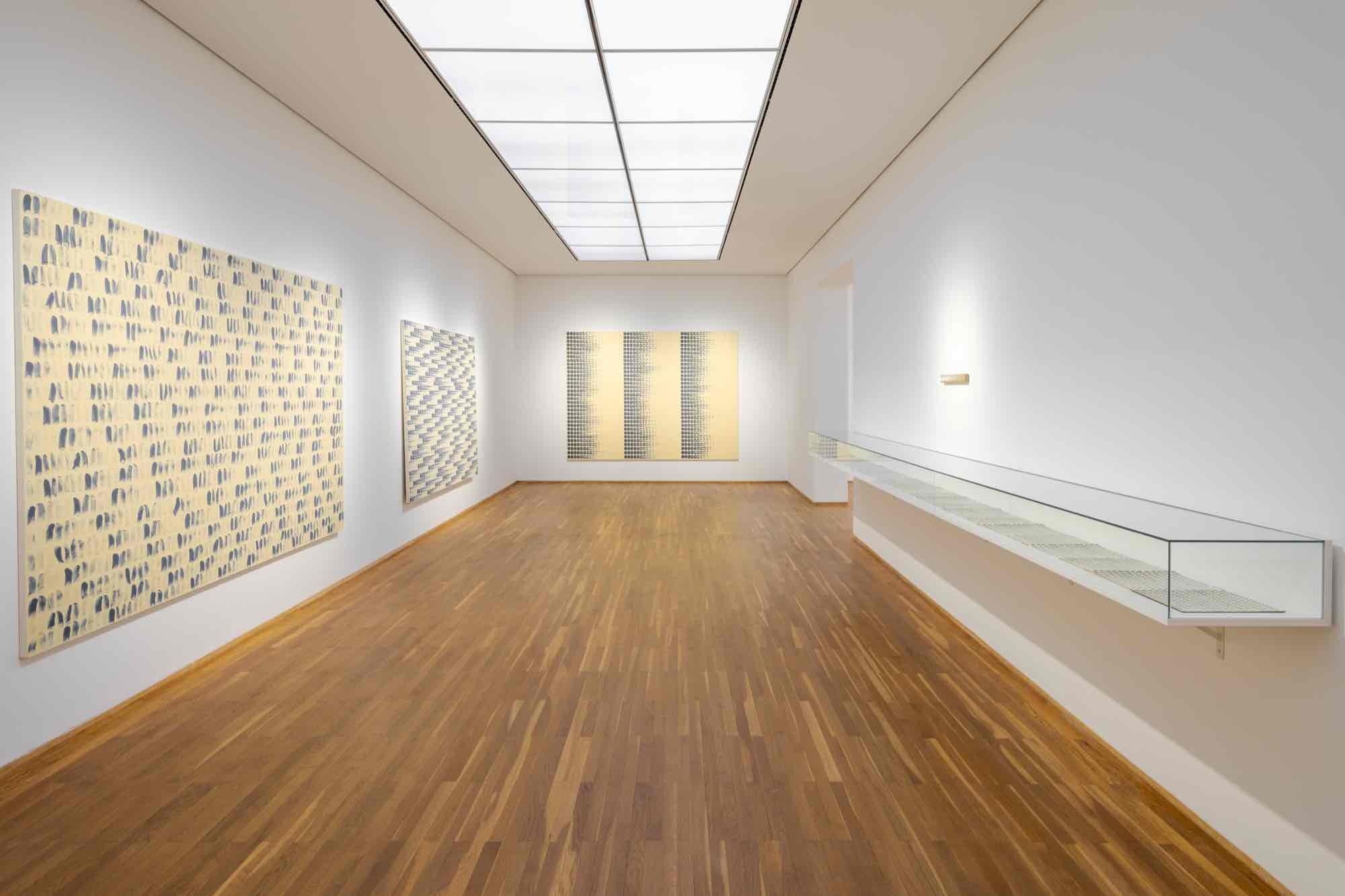
Exhibition view „Lee Ufan“, Hamburger Bahnhof – Nationalgalerie der Gegenwart, 27.10.2023 – 28.4.2024 © Lee Ufan. Courtesy of Studio Lee Ufan / VG Bild-Kunst, Bonn 2023 / Jacopo La Forgia
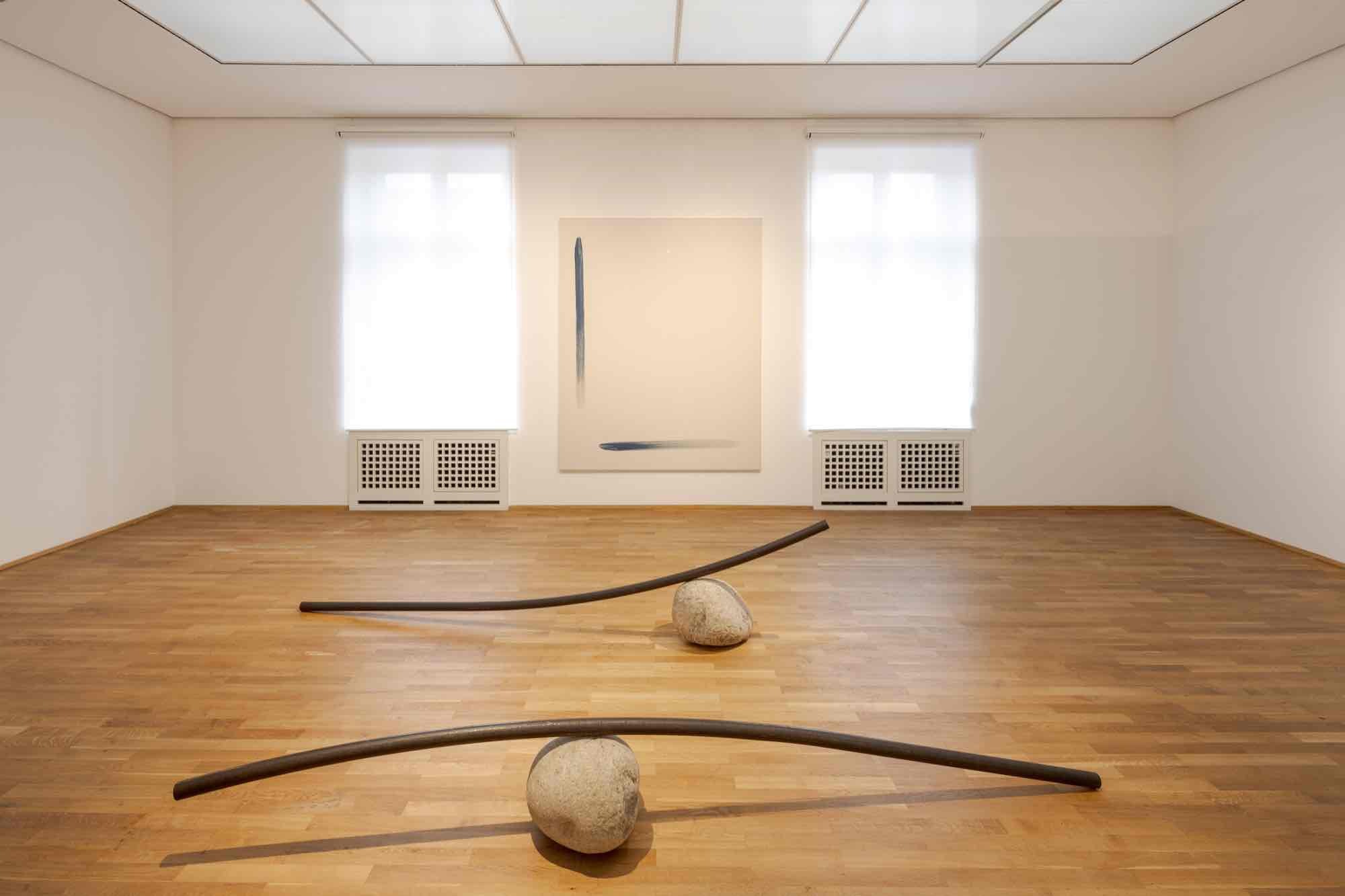
Exhibition view „Lee Ufan“, Hamburger Bahnhof – Nationalgalerie der Gegenwart, 27.10.2023 – 28.4.2024 © Lee Ufan. Courtesy of Studio Lee Ufan / VG Bild-Kunst, Bonn 2023 / Jacopo La Forgia
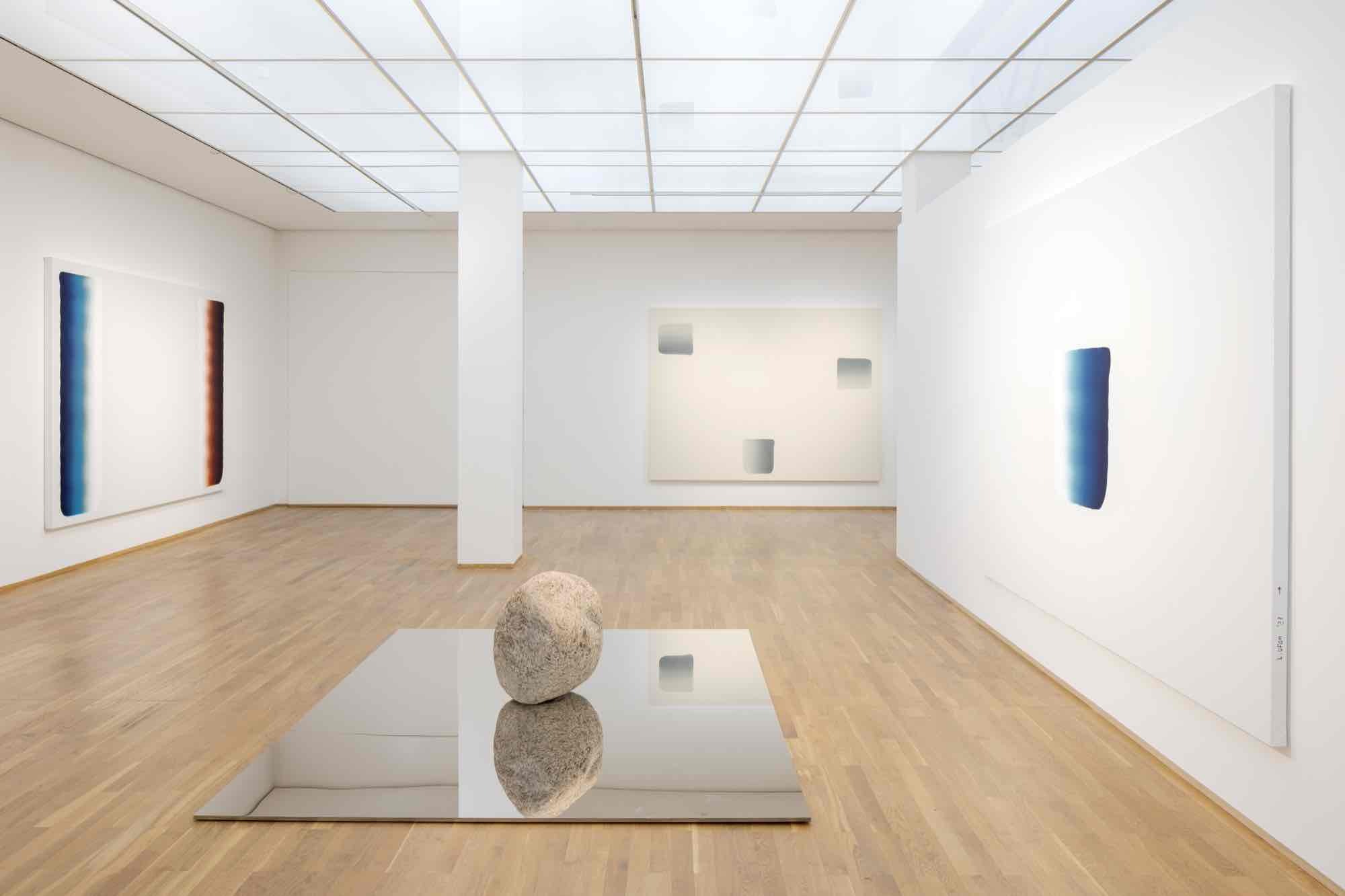
Exhibition view „Lee Ufan“, Hamburger Bahnhof – Nationalgalerie der Gegenwart, 27.10.2023 – 28.4.2024 © Lee Ufan. Courtesy of Studio Lee Ufan / VG Bild-Kunst, Bonn 2023 / Jacopo La Forgia
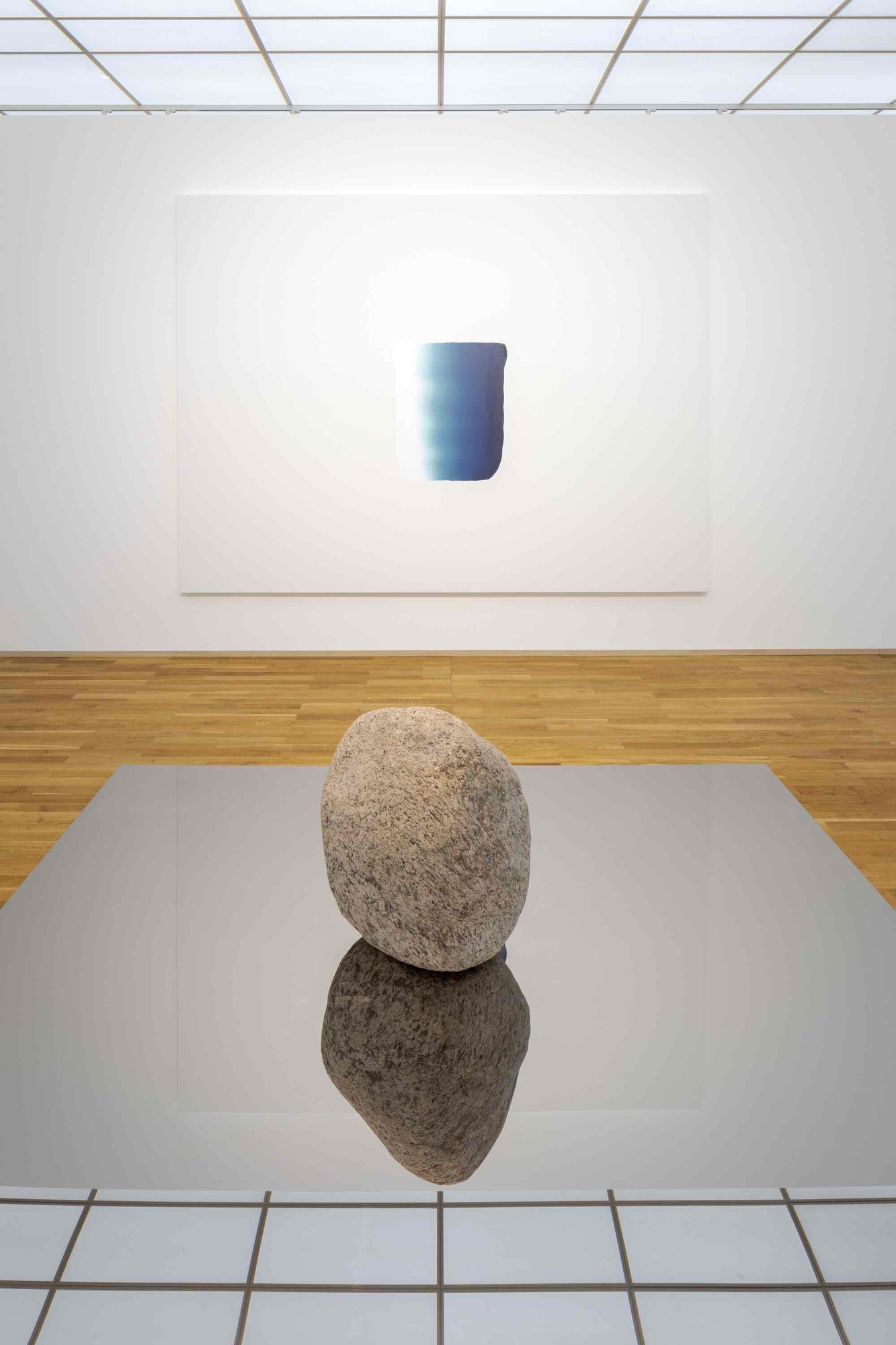
Exhibition view „Lee Ufan“, Hamburger Bahnhof – Nationalgalerie der Gegenwart, 27.10.2023 – 28.4.2024 © Lee Ufan. Courtesy of Studio Lee Ufan / VG Bild-Kunst, Bonn 2023 / Jacopo La Forgia
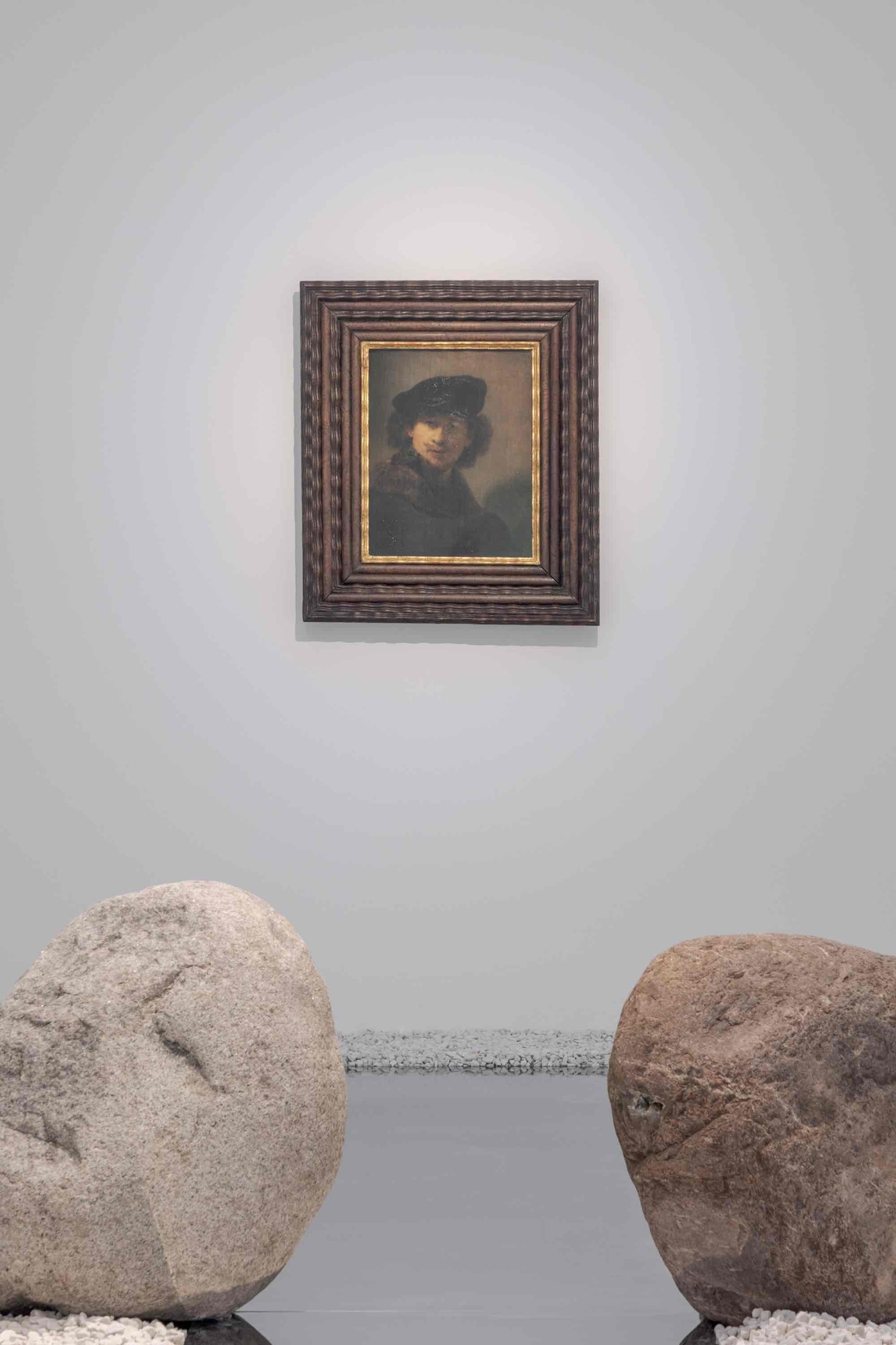
Exhibition view „Lee Ufan“, Hamburger Bahnhof – Nationalgalerie der Gegenwart, 27.10.2023 – 28.4.2024 © Lee Ufan. Courtesy of Studio Lee Ufan / VG Bild-Kunst, Bonn 2023 / Jacopo La Forgia
Hamburger Bahnhof presents the first comprehensive retrospective of the painter and sculptor Lee Ufan in Germany. Lee is one of the most important representatives of the Mono-ha school in Japan and the Dansaekhwa movement in Korea, which developed in parallel to other minimal art movements. The exhibition shows about 50 works from the past five decades.
Lee’s decades-long engagement with painting is addressed by an extraordinary highlight: Rembrandt’s famous Self-Portrait with Velvet Beret (1634) from the Berlin Gemäldegalerie is shown for the first time at Hamburger Bahnhof and enters into a dialogue with Lee’s expansive installation “Relatum – The Mirror Road” (2016/2023). In this way, Lee’s art introduces visitors to the formative art movements of Japan and Korea in the 1970s and provides a new perspective on an icon of Western European art.
The exhibition provides an insight into the work of the Korean artist Lee Ufan (born 1936, lives and works in Kamakura, Japan), almost 50 years after his first participation in an exhibition at the Kunsthalle Düsseldorf. Lee’s philosophical writings shaped the artists’ collective Mono-ha (School of Things), which was active in Tokyo from 1968 to 1975. Mono-ha is one of the most influential styles of post-war art in Japan. In their sculptures and installations, the artists combined raw materials such as stones, branches or earth with industrial materials such as steel or glass. This understanding of art as a reordering of things is shown, for example, in Lee’s sculpture series Relatum (from 1968). In the Dansaekhwa movement, Korean artists began to explore abstraction and materiality in the mid-1970s, especially in monochrome painting. Paintings from Lee’s series From Point (from 1973) and From Line (from 1978) bear witness to this. In the museum’s garden, the sculpture Relatum (1977) from the collection of the Nationalgalerie will be on display, the first time it has been shown in Berlin since 1985.
During its run, an artistic intervention by Lee will be installed in the Rembrandt room of the Gemäldegalerie. Lee, who repeatedly refers to European roots in his works, thus enters into a multi-layered dialogue with Rembrandt's works.
The exhibition is curated by Sam Bardaouil and Till Fellrath with assistant curators Luisa Bachmann and Lisa Hörstmann.
Lee’s decades-long engagement with painting is addressed by an extraordinary highlight: Rembrandt’s famous Self-Portrait with Velvet Beret (1634) from the Berlin Gemäldegalerie is shown for the first time at Hamburger Bahnhof and enters into a dialogue with Lee’s expansive installation “Relatum – The Mirror Road” (2016/2023). In this way, Lee’s art introduces visitors to the formative art movements of Japan and Korea in the 1970s and provides a new perspective on an icon of Western European art.
The exhibition provides an insight into the work of the Korean artist Lee Ufan (born 1936, lives and works in Kamakura, Japan), almost 50 years after his first participation in an exhibition at the Kunsthalle Düsseldorf. Lee’s philosophical writings shaped the artists’ collective Mono-ha (School of Things), which was active in Tokyo from 1968 to 1975. Mono-ha is one of the most influential styles of post-war art in Japan. In their sculptures and installations, the artists combined raw materials such as stones, branches or earth with industrial materials such as steel or glass. This understanding of art as a reordering of things is shown, for example, in Lee’s sculpture series Relatum (from 1968). In the Dansaekhwa movement, Korean artists began to explore abstraction and materiality in the mid-1970s, especially in monochrome painting. Paintings from Lee’s series From Point (from 1973) and From Line (from 1978) bear witness to this. In the museum’s garden, the sculpture Relatum (1977) from the collection of the Nationalgalerie will be on display, the first time it has been shown in Berlin since 1985.
During its run, an artistic intervention by Lee will be installed in the Rembrandt room of the Gemäldegalerie. Lee, who repeatedly refers to European roots in his works, thus enters into a multi-layered dialogue with Rembrandt's works.
The exhibition is curated by Sam Bardaouil and Till Fellrath with assistant curators Luisa Bachmann and Lisa Hörstmann.
